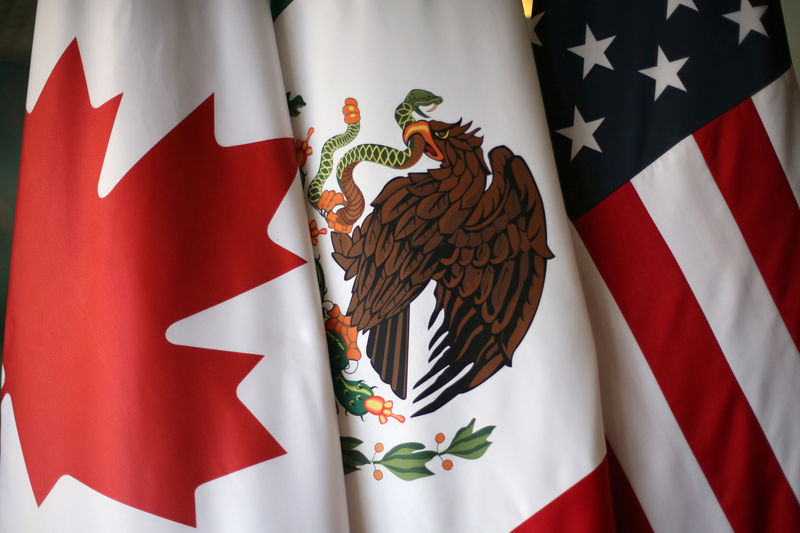By Dave Graham
MEXICO CITY, March 30 (Reuters) - U.S. trade negotiators have floated a plan to introduce rules under a reworked NAFTA that stipulate a certain amount of automotive production must be carried out in areas paying higher salaries, two sources familiar with the matter said.
Setting such wage requirements for the auto industry under the North American Free Trade Agreement could benefit the United States and Canada, whose trade unions say that lower Mexican pay has caused a drift in manufacturing capacity to Mexico.
The U.S. plan aims to explore what percentage of output could be in areas paying higher salaries, and at what levels of remuneration the scheme could be targeted, said one of the two sources, who spoke on condition of anonymity.
Mexico's government and its NAFTA partners were all analyzing the U.S. idea, the source said.
The news follows a week in which hopes have risen that the United States, Mexico and Canada could be closer to a consensus on one of the thorniest issues surrounding renegotiation of NAFTA - regional content levels for the auto industry. week, industry sources said that the United States had withdrawn a divisive demand that at least 50 percent of NAFTA auto content should come from the United States.
The wage idea was floated after that, the sources said.
The United States, which also wants to raise the minimum auto content threshold for the NAFTA region to 85 percent from 62.5 percent, is exploring setting a wage floor at $15 per hour for the salary component, the second of the sources said.
However, if a deal is reachable, it would likely end up at a lower level than that, the source added.
Mexico's economy ministry had no comment on the matter, a ministry spokesman said.
Alex Lawrence, a spokesman for Canadian Foreign Minister Chrystia Freeland, said it was a question for the office of U.S. Trade Representative (USTR) Robert Lighthizer "as to whether they are going to present something along those lines."
A USTR spokeswoman declined comment.
A Washington-based auto industry representative said companies were still trying to understand the concept, but it could be another way of mandating a certain level of U.S. production.
"It certainly seems to be designed to put pressure on Mexico to raise wages. It is also designed to discourage auto exports from Mexico," the representative said.
Requiring higher wage rates for some activities would make it harder for Mexican-built vehicles to qualify for tariff-free NAFTA access than those produced in the United States or Canada, where wage rates are higher.
"It could have many of the same challenges that the original U.S. proposal had, if not more," the official said, adding that automakers were opposed to proposals that raise costs and hurt the global competitiveness of North American auto production.
Freeland's office said she would be meeting her NAFTA counterpart Mexican Economy Minister Ildefonso Guajardo on Friday in Toronto to discuss the ongoing renegotiation.
U.S. President Donald Trump has railed against jobs migrating from the United States to Mexico, and threatened to dump the trade deal if it cannot be reworked to his liking.
Progress on auto rules have spurred optimism that the three sides, which have been locked in sluggish talks for months, could reach a deal "in principle" in the coming weeks.
No date has yet been agreed for another formal round of talks, one of the sources said. Mexico said earlier this month the talks had been tentatively set for April 8 in Washington.
